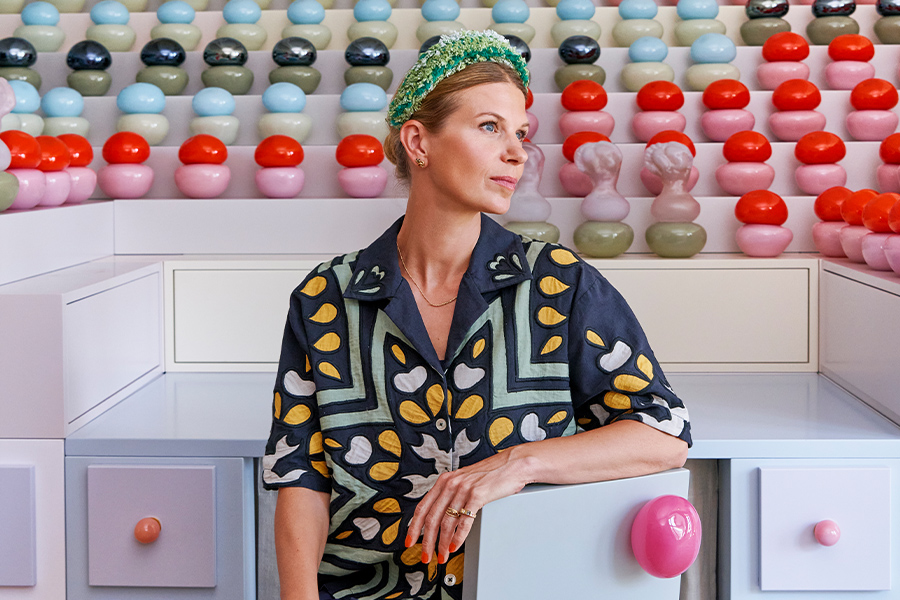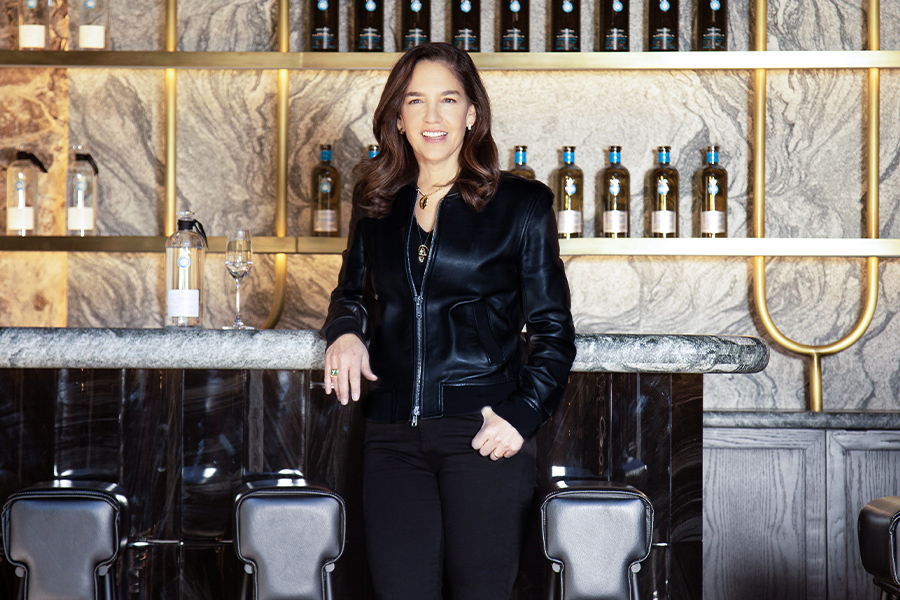Since Barbara Muckermann was named CEO of Kempinski Hotels in 2024—the first woman to hold the position at the company—she has spent ample time looking back at the luxury brand’s long and innovative history.
The Kempinski family opened a wine shop in Germany in 1862, laying the foundation for entertainment-fueled restaurants with ornate interiors that introduced concepts like wine by the glass and home delivery. Eventually, this bold hospitality model extended to hotels. Likening herself to a brand custodian, Muckermann is eager to “take that history and make it relevant to today’s customers because the past is hugely important, but only if it shapes your behavior and relationship with the customer today,” she explains.
Fluent in five languages, Muckermann kicked off her career in crisis communications before venturing into the cruise industry, working for the likes of Silversea and MSC. But, it was in Milan where she “learned luxury,” as she puts it. At the fashion house Loro Piana, where she worked in strategic marketing, she discovered that true luxury is “about how it makes you feel,” she says. “Typically, it’s a simple object with a hedonistic layer you don’t need but gives you so much pleasure.”
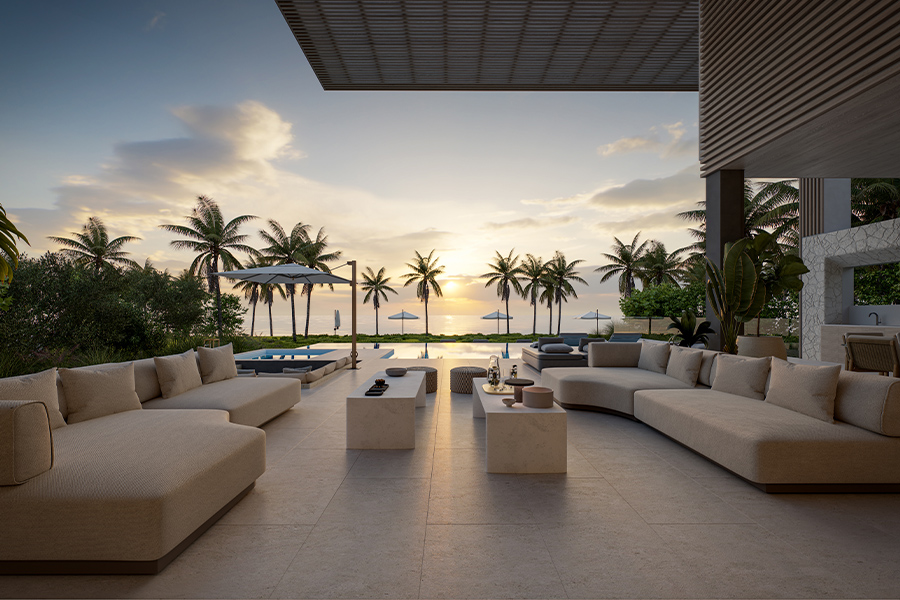
A rendering of the soon-to-open Kempinski Grace Bay Turks & Caicos, which evokes a breezy island atmosphere
Her father was a maritime journalist and Muckermann accompanied him on his travels, swooning over Egypt in particular. “If, at a young age, you find yourself surrounded by these incredible interactions with nature, you realize that there is so much more to the world,” she recalls.
These disparate experiences were the ideal breeding ground for Kempinski, a name that conjured a certain mystique for Muckermann given her German roots. “I enjoy nurturing brands and bringing them to the next level,” she says. “I worked on amazing ones, but none of them was older than 50 years. You cannot buy heritage [like Kempinski].”
By focusing on that cultural DNA and strong customer-centered service, she believes there’s an opportunity to forge connections with guests looking for a unique point of view. “If everybody likes it, you’re not a brand,” Muckermann adds. “I always think that success in branding is the day when someone walks up to you and says, ‘You know what? I don’t like your product.’”
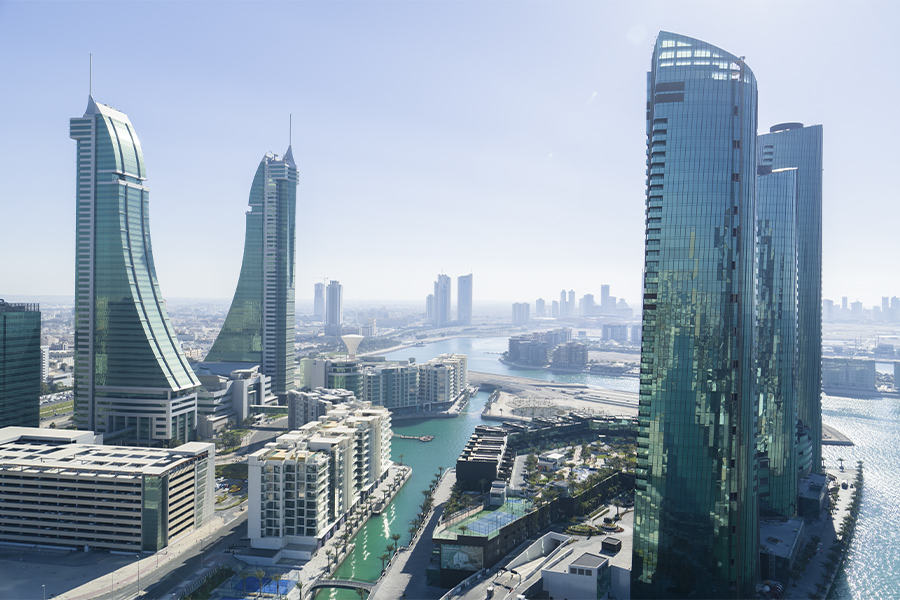
Kempinski Harbour Heights Bahrain will occupy one of three signature towers within the mixed-use development
Kempinski is independently owned, allowing Muckermann the freedom to focus on its longterm reinvention, and “bring it as high as possible in the luxury pyramid,” she points out. Design efforts, for instance, are now streamlined under chief product officer Rasha Lababidi, who steers the properties’ different design teams. “Kempinski will never be a brand that sends you 2,000 pages of standard operating procedures and say, ‘This is how the room should look,’ because that’s not what modern hospitality should be like,” she adds.
Kempinski’s growth is intentional. The only new contract Muckermann signed this year was to manage the Kempinski Royal Residence Nymphenburg, a private villa belonging to the Bavarian Royal Family inside Munich’s Nymphenburg Palace gardens. As she wandered through the grounds with Prince Luitpold von Bayern, she was taken by the life-size figures of parrots his ancestors had crafted from a special porcelain to withstand freezing temperatures, just to wow passersby in the middle of snowy winters. “For me, that is the epitome of luxury,” says Muckermann. “Symbolically, it’s the perfect place to start our next phase.”
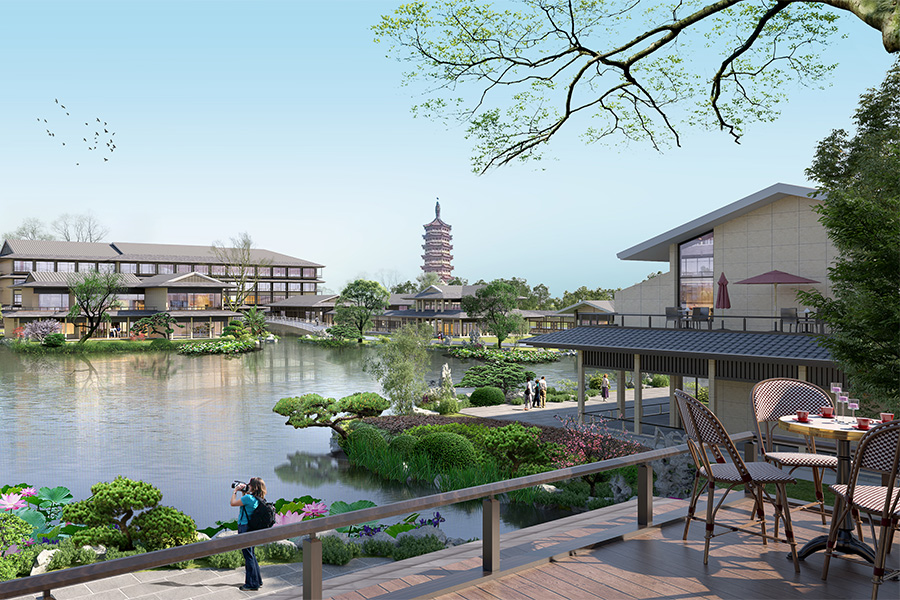
A rendering of waterfront hotels Kempinski Hotel Yangzhou Nuoyuan and Bristoria Hotel Yangzhou in China
This article originally appeared in HD’s September 2025 issue.

